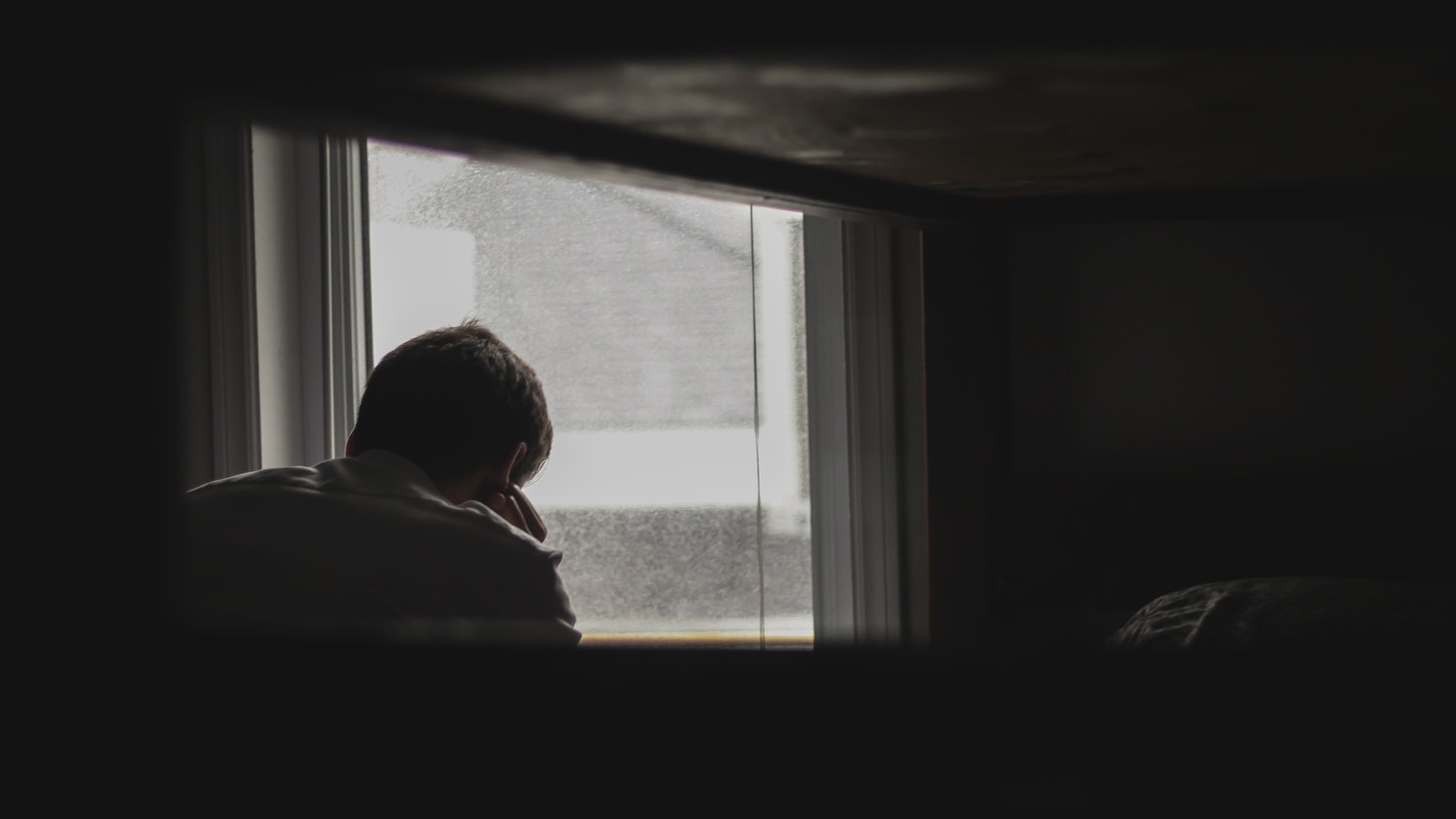Taking Care of Ourselves: #MeToo & Mental Health
By Scherezade Siobhan
The prominent writer Clarice Lispector once wrote, “Many were they who abandoned all they had and went in search of the greater hunger.”
The emergence of #MeToo across India’s digital landscape has created a new social climate for awareness about the importance of restorative justice and making explicit the unspoken trauma of sexual violence experienced by women and woman-identified folks, particularly those who are placed on the cusp of class, religion and caste. Ideally it gets to be more expansive and inclusive as well as intersectional in its progression, quite like the approach Raya Sarkar-Steier had when she initiated the movement in our cyberscape early last year.
ALSO READ: YOUR STORIES: HEALING AFTER RAPE AND AVOIDING TRIGGERS
The last few weeks have seen a dedicated and fiercely organised effort take shape thanks to the labour of a lot of women who have put their whole selves into razing misogyny, toxic masculinity and privilege in various digital and physical spaces. In its own necessary, uncensored and anarchic format, the movement has gained momentum with shared story-telling; a gathering of reportage directly from those whose experiences range on a scale for sexual violence as opposed to forced binaries which always err towards extreme violence as the only one that is recognised. On the flip side, the flood of stories has been causing re-traumatisation and acts as a constant trigger for survivors of trauma. If you have been experiencing heightened panic and anxiety in the last few days, the following steps for centering your wellness and mental stability might be useful.
ALSO READ: ME TOO AND MENTAL HEALTH
- Acknowledgement – It is important to acknowledge that you are experiencing something that might be beyond your control at the moment. It doesn’t mean that the self-work you may have done or the repression that might have occurred aren’t valid. It is equally important to find a support system or at least a few folks (whether digitally or in real life), who can acknowledge your anxiety, pain and attached emotional dissonance. We see ourselves as capable of healing when we find empathic witnesses to our pain. We want to be seen, heard and believed, not shamed and questioned repeatedly.
Trauma is often locked in the body and the mind like a spider caught in amber. It could be years old and the memory might seem foggy at times but the moment it is triggered, the volcanic eruption is undeniable and it seems very evident as well as recent. Acknowledging that you are experiencing discomfort or “unwellness” in this moment is perfectly alright. We exist in relationship to social variables, not in isolation from them. Acknowledgment allows you to notice and take stock of the fact that if things don’t feel alright, you have the right to ask for help, take some time out and also you don’t have all the answers but healing doesn’t need to be a neat line of a predestined journey. Each day you find a way to claim space is another day you have healed and moved forward. - Disengagement – None of our brains have been designed to process this massive inflow of traumatic information, as tends to be the case with social media. No doubt we might find it pertinent to participate at these crucial moments of collective action, but recognise that you cannot run on empty and if you feel emotionally and mentally depleted, the revolution will be powerless. People power revolutions and for that, we each need to take care of ourselves. Disengagement is a very important skill in these times. If you feel overwhelmed, disengage from the digital space and find something unrelated as well as nourishing for yourself. You can always join the forces back in time. Players when injured are asked to take the bench. Extend the same benefit to your psychological injuries as well. If you must follow the ongoing news more regularly, try setting specific times during the day where you can look at a curated feed for 15-20 minutes at one go, as opposed to constantly being latched on to the flow of information.
The Mute button is your friend. Not every troll needs an explanation or attention. Withdraw when you feel overwhelmed by things and be ok with spending time doing things you like for a while.

- Focused Visioning – At times like these the power differentials in our social hierarchies become so exposed in their unbearable vulgarity that we feel a sense of helplessness, as well as a distance from our innate ability to trust anything or anyone. In order to reinstate faith and strength in our own lived realities, I often turn to a simple exercise from sensorimotor psychotherapy which has proven valuable in treating trauma across the spectrum.
Close your eyes and think of a time when you truly felt strengthened, empowered, validated and in control. Think of that experience as literally lifting you up. Bring back the voices that champion you. Visualise it with all your might. Ask yourself a simple question – What part of my body holds power right now? How is the power energising me in this moment? Bring that energy into the present experience.
We all have access to cognitive, emotive and intuitive faculties. Step back from hyper-rationalisation and allow your emotional and behavioural intelligences to guide the way. Recognise that you have and will continue to access this source of power and validation in your life.
A lot of people who have experienced trauma via sexual assault or abuse experience what is called “hyperarousal”, which is excessive activation at the onset of a trigger, or “hypoarousal”, which is little to no arousal even with strong triggers. Both these states are maladapted to a large extent and can cause anxiety on the one hand or depressive phases on the other. Somatic or bodily awareness allows us to create what is called a “window of tolerance” that we are not rooted in our past and thereby we are not the sum of our trauma. Our bodies and our minds are capable of surmounting those experiences and creating newer, more empowering realities, as well as capable of processing unpleasant experiences without causing harm to ourselves or constantly fearing a relapse. - Grounding Exercises – Grounding exercises allow us to focus on our sensory inputs and redirect anxiety-inducing energy from traumatic memories towards a more calming and self-controlled sense of awareness for the current moment. These exercises allow us to undo the hold of a memory from a traumatic experience in our past and bring us back into the folds of our present surroundings where our bodies and minds are capable of experiencing more than just the trauma to which they have been subjected. Sensory awareness is always channeled and absorbed in the present. This is incredibly important for survivors of trauma. Which sense do you most depend on? Do you listen to music a lot? Do you like perfumes? Elevate that sense. Make a sensory toolkit of things that appease those senses. Create a playlist that helps you boost your morale. Keep a small vial of lavender oil around. Play with clay dough, or plant a small herb. Progressive muscle relaxation and body scans are always very helpful in restoring a sense of calm and ease of functioning to the body. If anxiety hits you severely and you don’t have someone you can reach out to physically for help, find the nearest wall and stand upright against it with your head held upwards. Close your eyes for a brief moment and breathe deeply. The feeling of one’s back being supported by something sturdy helps realign the nervous energy and makes us recognise that we can surmount the past in this moment.
- Ritual-setting – Make at least one ritual for centering yourself daily. When things are turbulent around us, we need a wooden plank to tide us through the choppy waters. Have something you can begin from and go back to, safely, each day. Whether you choose to begin the day by avoiding looking at your phone for the first hour of the day, or make an altar of photographs and mementoes from loved ones, adventures you have been on, or just plainly words from people whose lives have been inspirational for you, try creating at least one ritual you will follow for yourself. If you miss a day, don’t drag yourself about it. As Samuel Beckett wrote – Try again. Fail again. Fail better.
Revolutions are sometimes the only solutions. In the words of the phenomenal African-American queer feminist writer and activist June Jordan, “We are the ones we have been waiting for.” Let us heal through solidarity and let us all take care of each other in this fight for speaking truth to power while we dismantle personal, social and political hierarchies.
Editor’s Note: If you are feeling re-triggered, or traumatised, please do reach out to a trusted mental health expert for professional help. We have shared a list of resources, including the crowd-sourced list via iCall here
Material on The Health Collective cannot substitute for expert advice from a trained professional. If you would like to share your story, do write to us here or tweet us @healthcollectif
Feature Image by rawpixel.com
(This post has been updated to correct the references to June Jordan and Samuel Beckett.)



